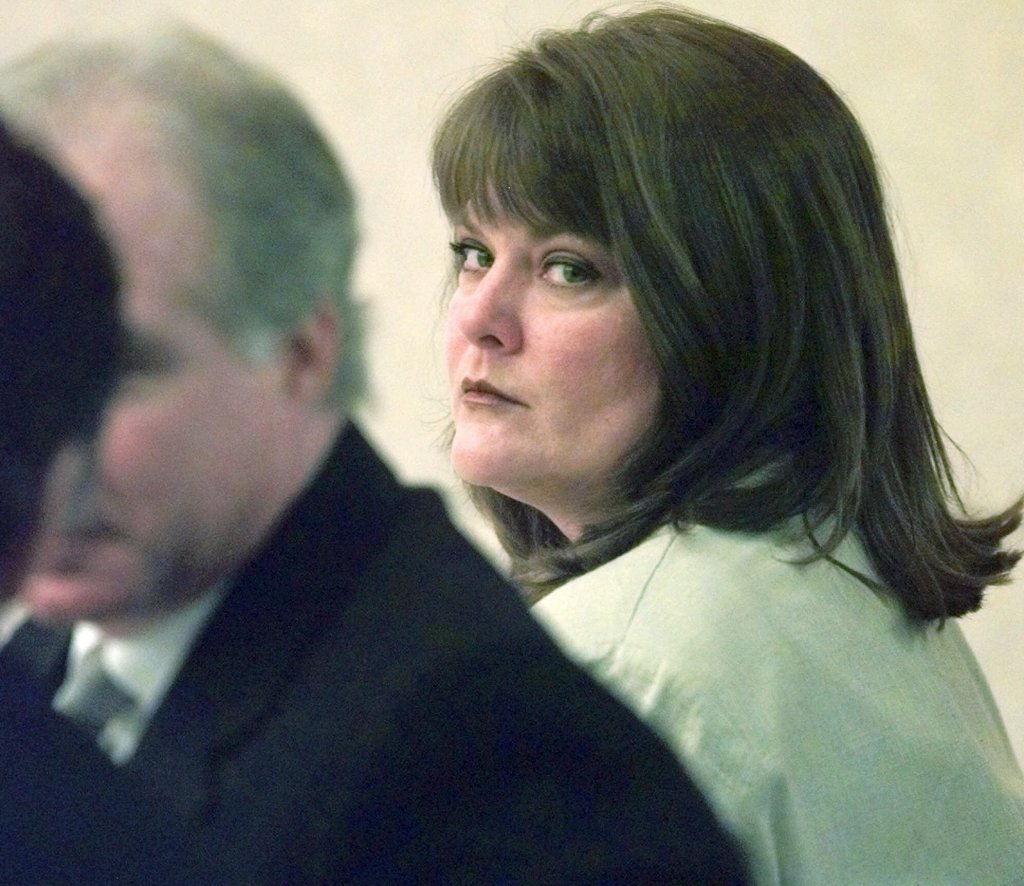
A mother sentenced to death for killing her four children in their San Marcos home 25 years ago has been resentenced to life in prison without the possibility of parole, a move pursued by prosecutors that ends her bid for a new trial.
Susan Eubanks, 60, was resentenced last Friday to life in prison without parole by Superior Court Judge Joan Weber, who presided over the case in 1999.
Weber had been set to review evidence Eubanks’ attorney brought seeking a new trial for Eubanks, who had filed petitions in the state’s court of appeals and federal court to challenge her conviction and sentence, arguing ineffective assistance of counsel.
Her appellate attorneys argued in state court filings that her trial attorneys chose to “abandon all mental health evidence they had gathered” and instead argue that their “mentally ill and brain damaged” client was a great mom until she killed her children. “(J)urors in this case were given a grossly misleading profile of her life and her mental functioning,” her appellate attorneys argued.
The district attorney’s office said last week that after a team of its prosecutors carefully considered the possible outcomes Eubanks’ petitions could have, the office “moved forward in the interests of justice,” deciding to ask for the resentencing “to ensure the defendant will never be released from prison.”
Now that she has been sentenced to life in prison instead of death, Eubanks is dropping her bids for a new trial.
Eubanks’ attorneys declined to comment on the case.
District Attorney Summer Stephan said in a statement Friday that prosecutors “are constantly making difficult decisions based on what is in the furtherance of justice and the protection of crime victims.”
“The moratorium on the death penalty in California and assuring that the victims’ family won’t be put through the anguish of a lengthy new trial, all factored into our decision to accept this agreement which is guaranteed to keep this murderer behind bars for the rest of her life,” Stephan said.
On Oct. 26, 1997, Eubanks shot her sons, aged 4, 6, 7, and 14, in the head, then shot herself in the stomach. On the day of the shooting, Eubanks had been arguing with her boyfriend, the father of her youngest child. Court documents paint a tumultuous day at the home.
That evening, Eubanks’ estranged husband had requested deputies check on the family after Eubanks left him a very brief voicemail: “Say goodbye.”
Deputies forced entry into the home and found three of the boys dead and took a fourth to a hospital, where he died. They also found her 6-year-old nephew, unharmed.
Eubanks’ gunshot wound was life-threatening, and she had written suicide notes for five people, including the fathers of her children.
At trial, the prosecution argued that Eubanks was motivated by anger and revenge against the men. Her attorneys argued she was too intoxicated to form intent. They did not present to the jury any evidence regarding her mental health or her troubled childhood history, including what her attorneys said in a federal filing was the trauma of “familial instability, violence, neglect and physical and sexual abuse.”
The filings from Eubanks’ attorneys indicate that when Weber presided over the trial in 1999, she expressed concern that the defense did not present any mental health evidence during the penalty phase, the portion of a death penalty trial in which the jury, after finding the defendant guilty, recommends whether the sentence should be life or death.
In 2022, Weber agreed to review the state petition. In doing so, the judge pointed to evidence supporting the argument that Eubanks had brain damage caused by fetal alcohol syndrome and said Eubanks’ previous attorneys should have pursued that path. She also noted that even though Eubanks’ trial attorneys had lined up mental health experts, they decided against putting them on the stand.
“Considering the dearth of information presented as to Petitioner’s mental health, trauma, and motivation for her shocking conduct, any expert testimony as to her mental illness and motivation might well have presented a reasonable probability the verdict at the penalty phase would be different,” the judge said in her 2022 decision agreeing to review Eubanks’ case.
Weber also agreed to consider arguments regarding Eubanks’ motivation for killing her children. At trial, prosecutors said Eubanks did so in revenge against their fathers. The defense did not show the jury research that such revenge killings of children are rare. Much more common is “altruistic filicide,” in which a parent has the deluded belief that killing the child is in the child’s best interest. Here, the theory would be that she killed her children to protect them from the sort of trauma she experienced as a child, including growing up without her own mother, who died in a house fire when Eubanks was 8 years old.
The hearing for Weber to review the evidence was set to happen last week. But in June, the district attorney’s office announced it would seek to have Eubanks’ sentence reduced to end the court battles. The hearing to review evidence instead became a hearing to resentence Eubanks to life in prison.
The last execution carried out in California was in 2006; the practice was put on hold in the face of legal challenges to the state’s method of execution. In 2019, Gov. Gavin Newsom placed a moratorium on California carrying out the death penalty during his time in office. He also moved to close death row at San Quentin. Several condemned inmates have been moved to other prisons.
Originally Published:

















































